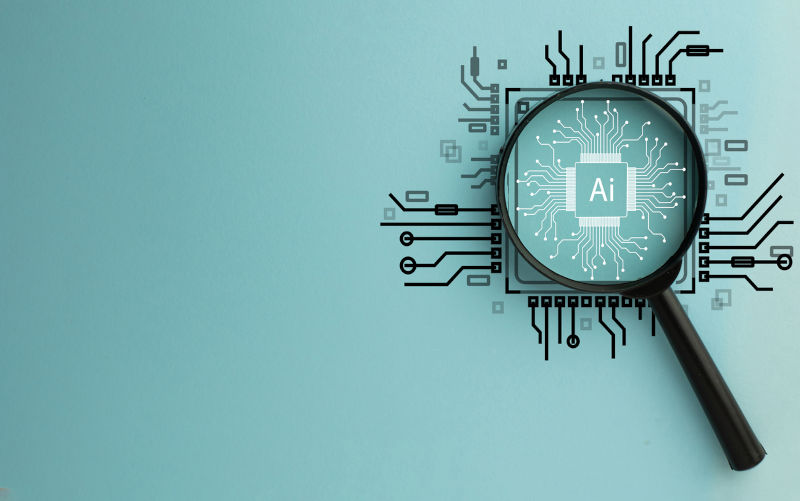It’s time to talk about AI and national security
July 31, 2025
The federal government has recently introduced legislation to extend the looming sunset clause on compulsory questioning powers originally granted to the Australian Security Intelligence Organisation (ASIO) following the 9/11 terrorism attacks.
The granting of exceptional executive powers to ASIO was notable at the time because the organisation was originally established as a purely advisory body in order to uphold the Westminster principle of the separation of powers.
The nature of the threat posed by terrorism is now seen more objectively with the benefit of hindsight, and the wide recognition that repressive counter-terrorism measures potentially pose a far greater threat to democracies and social cohesion than isolated terrorism incidents.
The federal government’s action in seeking to extend ASIO’s executive powers seems an appropriate time to ask:
- What are the potential implications of the powerful new capabilities enabled by Artificial Intelligence for intrusive mass surveillance?
- How can our inalienable human rights be protected in a brave new AI-shaped world?
To emphasise the profound nature of the impending changes enabled by AI, it is worth remembering that throughout the long arc of human history, our ability to create a safer and fairer world has been determined by the thinking and reasoning capabilities of the human mind, typically described as human intelligence. The evolution of human intelligence has underpinned reason and rules-based forms of social organisation, at the same time mediating visceral emotions like fear, anger, greed and distrust.
Human intelligence is the foundation for the core values that shape contemporary Western societies, including: respect for human dignity and equality; acceptance of the rule of law; aggregation of power through a democratic mandate; and an economy that advances social justice and supports the most vulnerable. The strength of the community’s commitment to these core values is the primary determinant of a secure and cohesive society.
In contrast, intelligence that has been generated by advanced data-processing technologies is characterised as “artificial” because it does not emanate from humans. These evolving technologies have unprecedented capabilities to rapidly analyse huge volumes of information, often identifying unique new patterns. What distinguishes these emerging technologies is just not their speed and data processing capabilities, but a seemingly exponential capacity for machine learning and recursive improvement.
These technologies seem to be moving inexorably towards the development of powerful autonomous intelligence capabilities, where the output not only far exceeds any human intelligence capability, but is generated independently of any human control or influence.
Science and technology have always played a crucial role in improving the quality of life for billions of people, and, with the exception of the development of powerful weapons of destruction, these advances have been moderated by human control. However, for the first time in human history, emerging AI-based technologies that offer the prospects of transformational change in every aspect of human life may come to shape our future world. In such a scenario, the power to enact major change may gradually shift from humans to powerful AI-based technologies.
This prospect poses several existential challenges. What can we do to ensure that the core human values that are the foundation for our contemporary liberal democracies are aligned with AI-generated priorities? How would AI-based technologies incorporate intangible human concepts like dignity, hope, kindness, integrity and honour? Are the greatest challenges confronting humanity no longer scientific and technical, but moral and ethical, ensuring intrinsic human interests are incorporated into a radically transforming world.
AI-based technologies may have particular relevance to the national security function, where there is inherent potential for both nominal and actual harm. Digitisation and universal connection means that it may already be technically feasible for every minute aspect of individual human behaviour to be monitored, recorded and instantaneously analysed for its consistency with community-wide norms. Cameras and microphones are endemic in personal spaces, with a theoretical potential to automatically stream data on mundane life to the cloud.
The prospects of mass-surveillance may currently seem remote because our values (in particular respect for personal privacy) and institutionalised accountability (checks and balances) would view them as both illegal and a fundamental betrayal of the social contract in a liberal democracy. But in reality, the right to lead a private life unmonitored by either the state or private interests has been progressively eroded in the last two decades, with ubiquitous CCTV coverage in public spaces, prompted in part by now-unfounded counter-terrorism fears. Small AI-controlled drones are now playing an increasingly important role in modern warfare; how long before they are used for surveillance of individuals in a national security context?
Looking into the longer-term, it seems reasonable to assume that advanced autonomous intelligence-based technologies may include self-protective measures to defend against what are currently called cybercrimes. If mass (society-wide) surveillance became a logical, precautionary, relatively benign and cost-effective means of defending against prospective cyber threats, what would prevent such autonomous action?
In conclusion, it seems likely that the progressive expansion of AI-based technologies will provide diverse opportunities for exploitation by zealous national security functions wanting to expand their mass-surveillance capabilities. While the current continuation of what were originally intended to be exceptional executive powers for ASIO may seem relatively innocuous, the lack of critical public debate may be emblematic of a general community complacency on the protection of essential civil liberties.
The views expressed in this article may or may not reflect those of Pearls and Irritations.

